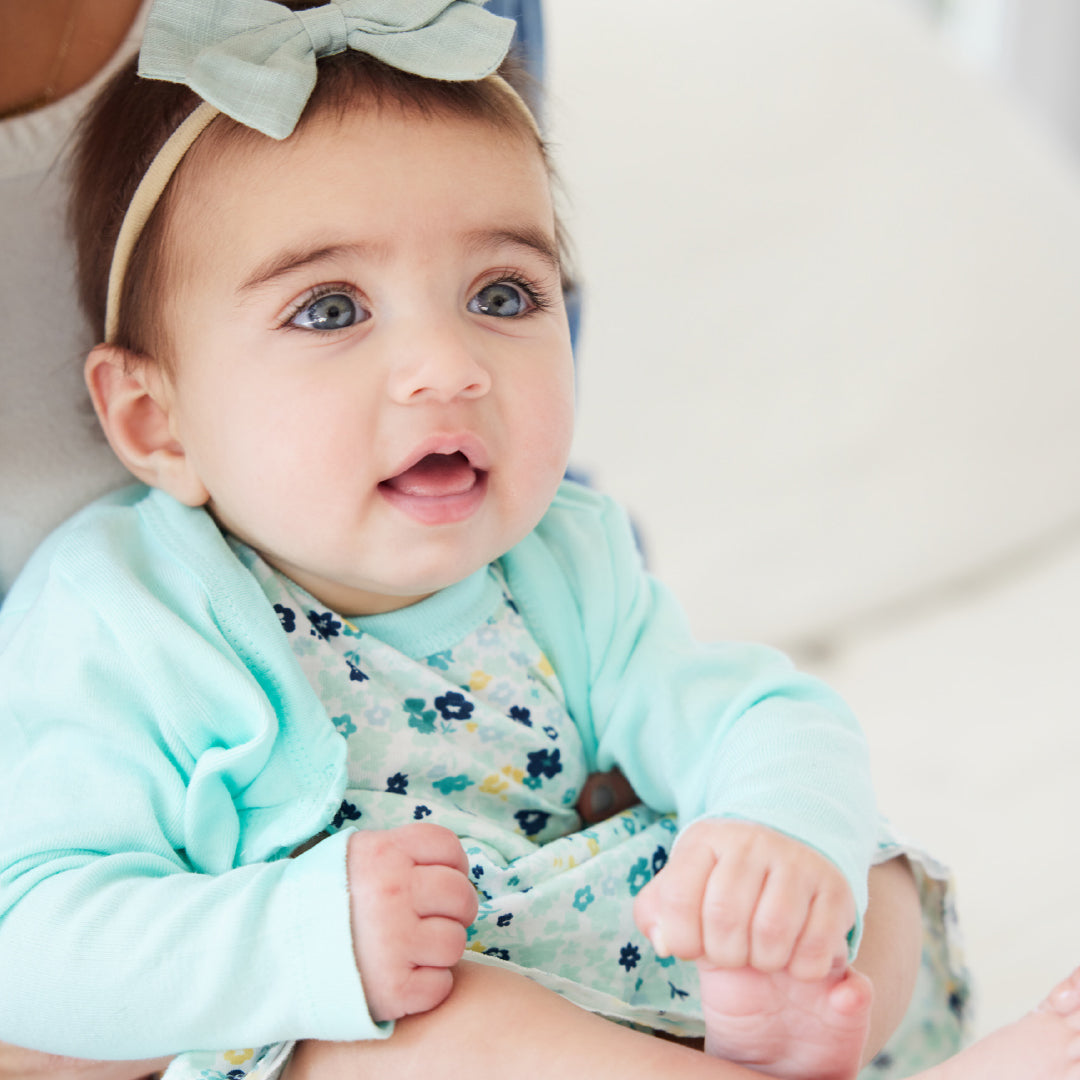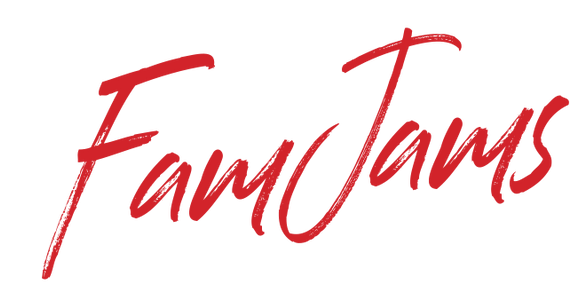
Major Baby Milestones in Year 1
The Short Answer: Babies reach major developmental milestones throughout their first year, typically following predictable patterns between 2-12 months of age. While most babies develop following predictable patterns, each child develops at their own unique pace within these general timeframes.
Tracking your baby's developmental journey during the first year helps you celebrate exciting new abilities while staying informed about their progress. This guide breaks down key physical, social, and cognitive milestones month by month, from first smiles to first steps. You'll learn typical age ranges for rolling over, sitting up, crawling, walking, and other achievements that mark your baby's growth.
Remember that every baby develops differently – reaching milestones a little earlier or later than average is usually normal. Use this guide as a general reference point, not a strict timeline. If you have concerns about your baby's development, your pediatrician is the best resource for personalized guidance.
Developmental Milestones By The Month
From the moment your baby arrives, they begin an amazing journey of development. Each week brings new abilities and discoveries.

Birth to 6 Weeks
Your newborn starts life with natural reflexes that help them survive and connect with their world. They turn their head when you stroke their cheek (rooting reflex) and grip your finger when you touch their palm (grasp reflex).
By week 6, most babies show their first social smiles - not the random smiles of sleep, but real responses to your face and voice. Head control starts developing, though they still need full support.
6 Weeks to 2 Months
Watch as your baby gains more control over their movements. They can now hold their head up for short periods during tummy time, though it may still be wobbly. Sweet cooing sounds emerge as they experiment with their voice. Your baby tracks moving objects with their eyes and may turn their head to follow your movements across the room.
2-3 Months
This period brings exciting changes. Your baby now shows strong head control when held upright, keeping their head steady with minimal support. Their first real laughs appear - usually sparked by funny faces or playful sounds. During tummy time, they can push up on their forearms, strengthening their neck and upper body muscles. Hand coordination improves as they begin to discover and reach for objects, though grabbing them successfully may take more time.
Month 4
Babies hit several physical milestones at 4 months as their muscles grow stronger. Most babies master rolling from back to tummy during this month. Hand-eye coordination makes big strides - babies track moving objects and reach for toys with more precision. Supported sitting practice can begin now, using pillows for safety and offering light hip support.
Month 5
Rolling becomes a two-way skill as babies learn to roll from tummy to back. Most babies can sit with support for longer stretches, showing improved balance and core strength. Grabbing toys and bringing them to their mouth becomes a constant activity. This mouth exploration helps develop fine motor skills and lets babies learn about different textures.
Month 6
Sitting without support starts happening, usually for short periods at first. The first teeth often appear, typically the bottom front teeth (central incisors). Babbling increases with consonant sounds like "ba-ba" and "da-da." Many babies are ready to try solid foods at this age - they can hold their head steady and have lost the tongue-thrust reflex that pushed food out.
Tummy time gets more interactive as babies can lift their chest higher and look around. For starting solids, look for signs like:
-
Good head control
-
Interest in watching others eat
-
Ability to move food to the back of the mouth
-
Can sit with support
-
Shows interest by opening mouth for spoon
Month 7
Most babies are more comfortable sitting without support during this time, using their arms to catch themselves if they start to tip. While some babies begin crawling now, others develop their own way of getting around - scooting on their bottom, army crawling, or rolling to their destination.
Teething continues, with many babies getting their upper central incisors. Their babbling becomes more complex, mixing consonants and vowels like "ba-ba" or "ma-ma," though they're not yet using these as actual words.
Month 8
Eight-month-olds typically become strong crawlers, moving confidently on hands and knees. They're fascinated by their growing abilities and practice constantly. Many start pulling up to stand while holding furniture, though their legs may still be wobbly.
A notable achievement is the development of the pincer grasp - using thumb and forefinger to pick up small objects. This new skill improves their ability to self-feed and handle finger foods. They can now manage small, soft pieces of food and hold their own bottle.
Month 9
By 9 months, most babies are mobility experts. They often begin "cruising" - walking while holding onto furniture. Their balance improves daily as leg muscles strengthen through practice.
Speech development takes a leap forward. Babies now produce clear consonant sounds and may say their first actual words, usually "mama" or "dada." They understand several simple words like "no," "bye-bye," and their own name.
Feeding skills advance significantly. Many babies can drink from a sippy cup and handle more textured foods. They show increasing interest in feeding themselves and might try to use a spoon, though most attempts end up messy.
These months mark dramatic physical and cognitive growth as your baby moves steadily toward their first steps and words. Each skill builds on previous achievements, creating a foundation for the exciting developments ahead.
Months 10-11
Your baby is on the move and preparing for major milestones. At this stage, most babies perfect their crawling technique and start "cruising" - walking while holding onto furniture. They'll practice standing alone for a few seconds, though they might plop down quickly. Their growing confidence shows as they test their balance and strength.
Your little one's finger skills are improving too. They can pick up small objects using their thumb and forefinger, and they're ready to try more finger foods. Offer soft, bite-sized pieces of fruits, well-cooked vegetables, and tender meats. They'll likely want to feed themselves, though it can get messy!
Month 12
Walking usually starts between 9 and 15 months, with many babies taking their first independent steps around their first birthday. They might take a few wobbly steps between furniture pieces or toward you with arms outstretched.
Language development picks up speed now. Most one-year-olds can say 2-3 recognizable words like "mama," "dada," or "no." They understand many more words than they can say and follow simple commands like "wave bye-bye."
Important Reminders
Your baby's development follows their own timeline, but keeping track helps spot potential concerns early. Use your pediatrician's milestone checklist during regular checkups, and note your baby's progress in a journal or baby book.
If your baby was born prematurely, use their adjusted age (corrected for prematurity) when tracking milestones, especially during the first two years.
Watch for these signs that suggest checking with your pediatrician:
-
Not crawling or scooting around
-
Unable to stand with support
-
No words or babbling
-
Not responding to their name
-
Shows no interest in interactive games like peekaboo
Frequently Asked Questions: Major Baby Milestones
Physical Development
When do babies roll over?
Most babies learn to roll from tummy to back between 2-4 months old, and from back to tummy between 4-6 months. Rolling over is often one of the first major motor milestones parents witness. Some babies may roll earlier or later, and this is typically normal variation.
When do babies sit up?
Babies usually begin sitting with support around 4-6 months and can sit independently without support between 6-8 months. They'll first master sitting with their hands propped in front for balance before achieving stable, unassisted sitting.
When do babies start crawling?
Traditional crawling typically begins between 7-10 months, though some babies may start as early as 6 months or as late as 12 months. Some babies skip crawling entirely and move straight to standing and walking, which is also perfectly normal.
When do babies start walking?
Most babies take their first independent steps between 9-15 months, with the average being around 12 months. Before walking independently, babies will typically pull themselves up to standing and "cruise" along furniture for support.
Anatomy Development
When do babies get teeth?
Teething symptoms can begin as early as 2-3 months old, even though the first tooth may not appear until later. Signs include increased drooling, wanting to chew on everything, irritability, and changes in eating or sleeping patterns.
The first teeth usually appear between 4-7 months old, typically starting with the bottom front teeth (central incisors). However, some babies may get their first tooth as early as 3 months or as late as 12 months.
When do babies get kneecaps?
Babies are actually born without fully formed kneecaps! They have cartilage where their kneecaps will eventually be. True bony kneecaps (patellae) don't fully develop until around 3-5 years old. This is why babies and toddlers can crawl and kneel so comfortably.
Social and Emotional Development
When do babies start smiling?
Babies typically begin social smiling (smiling in response to others) around 6-8 weeks old. Before this, any smiles you see are usually reflexive and not intentionally social. These first real smiles are wonderful bonding moments for parents and caregivers.
When do babies start laughing?
Most babies begin laughing out loud between 3-4 months old. Their first laughs are often triggered by physical play, funny faces, or unexpected sounds. Each baby's sense of humor develops uniquely.
Communication Development
When do babies start talking?
Babies typically say their first recognizable words between 10-14 months old, with "mama" and "dada" often being among the first. However, babies begin communicating much earlier through crying, cooing (around 2 months), and babbling (around 4-6 months).
Feeding Milestones
When do babies start eating baby food?
Most babies are ready to start solid foods around 4-6 months old. The American Academy of Pediatrics recommends waiting until at least 4 months and ideally closer to 6 months. Signs of readiness include sitting up with support, showing interest in food, and losing the tongue-thrust reflex.
Get All The Essentials For All The Milestones
That's where Honest Baby Clothing comes in. Crafted from super soft, sustainably sourced, 100% certified organic cotton, their complete line of clothing, bedding, bath products, and accessories is designed to grow with your baby through every milestone.
Honest Baby Clothing offers affordable, quality baby essentials that both you and your little one will love. Their plant-dyed, chemical-free designs are perfect for sensitive skin, giving you peace of mind while your baby explores their world.
From newborn to 24 months and beyond, every milestone deserves to be comfortable, safe, and celebrated. Visit Honest Baby Clothing to discover organic essentials that will support your baby's journey through every exciting developmental stage.
Remember: every baby develops at their own pace, and that's perfectly normal. Trust your instincts, enjoy the journey, and don't forget to capture those precious milestone moments along the way.


